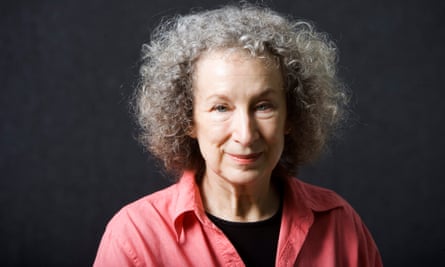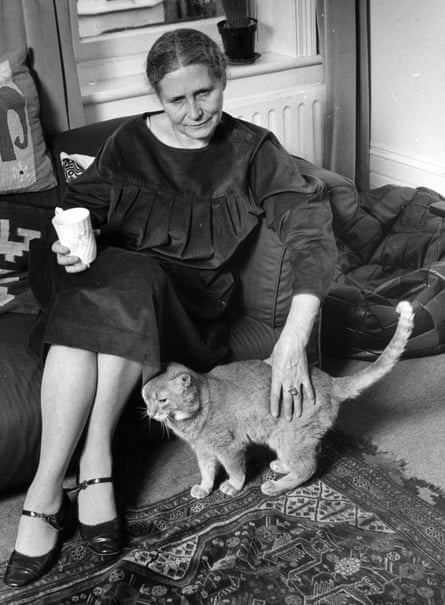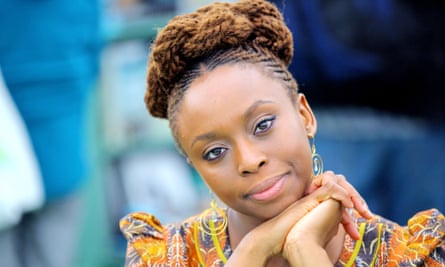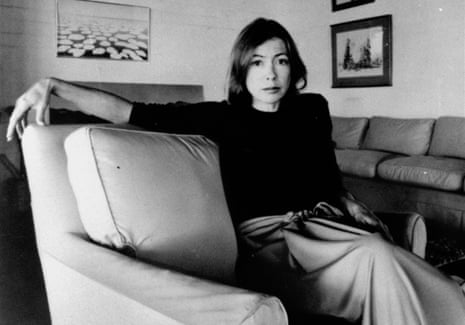Ahead of International Women’s Day, we invited our readers to celebrate women writers. Help us by adding your favourite books written by women in the comments below – as well as the story of how they earned a place on your shelves.
The White Album by Joan Didion. Made her one of my favourite living writers and essay collections one of my favourite literary genres. —DJMC
A Wrinkle In Time (series) by Madeleine L’Engle – I loved these books when I was younger, they were well-developed, unique, quasi-science based concepts that I found fascinating. —Jennifer Myers

I adore everything by Hilary Mantel and Margaret Atwood, among others, but for personal impact, I have to go with The Dispossessed by Ursula K LeGuin. It forever shaped what I think and feel about love, faith and justice. —davidloy
The Children of Violence series by Doris Lessing. Hard to summarise how this opened my eyes to a different world. One of the very few fiction books that have ever left me with something other than “what was that about?” —JohnChanin
Written on the Body by Jeanette Winterson – All of her early books have affected me a lot and I’d probably rate Sexing the Cherry as my favourite, but I think it was the sheer power of Written on the Body which made the greatest impression on me. As a young twentysomething I was drawn to its all-consuming intensity, its fevered portrayal of love, loss and rage, as well as the androgenity of the narrator which gave it a timeless universality. —nilpferd
@GuardianBooks obviously "mémoires du jeune fille rangée", first autobiographical novel by Simone de Beauvoir.
— Herculine Poirotte (@DrChapman87) March 6, 2015
@GuardianBooks Herta Müller, staggeringly good writer. The Appointment is probably my favourite of hers
— Rob Long (@roblongwrites) March 6, 2015
@GuardianBooks #IWD2015 : The Shipping News by Annie Proulx pic.twitter.com/JaDlHGGfWY
— Anti-Ka (@kat_reddan) March 6, 2015
Patricia Highsmith – I read the Ripliad – the name given to the five novels where the character Tom Ripley appears – last year (finishing the final book earlier this year) and experienced a joy and commitment to the story that I haven’t experienced since my teenage years reading John Grisham and Michael Crichton in my parents’ back garden.
Have to go with Daphne Du Maurier as well – the short stories are brilliant, and there are images from Jamaica Inn that still stick in my mind’s eye like a bad dream... —judgeDAmNation

Chimamanda Ngozi Adichie’s book Americanah has moved me like no other in recent memory. I would describe it as transformational because it provided an insight into the reality of what it means to be a young, ambitious, highly intelligent, sometimes single black woman in contemporary America. It’s an honest book about race, identity and the constant longing and nostalgia one feels for this metaphorical place called home. I was also moved by the story because it touchingly describes the loving relationship between the two central characters, showcasing that neither space nor time can erase love. We usually go back to the same desires and preferences we had as 15-year-olds, and Americanah captures this sentiment. Moreover, it is a transformational book because it portrays Nigeria as a place that is mythical, marvellous, chaotic and slightly dangerous, yet also wildly fascinating, with a magnetic power to attract its brightest emigrés back to its shores. Reading this has made me realise that some of the most powerful narratives in contemporary fiction have been written by young, highly educated female African writers, who are tired of the old clichés frequently bandied around about Africa. Ngozi Adichie is a new, powerful and incredibly talented voice; her novel Americanah is the expression of a different African tale, of a continent and its people that have many more magnetic stories to tell, as well as critiques to raise about the so-called enlightened West. —beograd
Pilgrim at Tinker Creek by Annie Dillard. Simply delightful, like a walk in the woods while meditating.
The Golden notebook by Doris Lessing. It made me realise how far we still had to go when I read it as a young woman in the early 80s.
Anything by Carson McCullers and Virginia Woolf, Marguerite Duras, Annie Proulx.
Colette, whose tender portraits of cats and lovers are magical.
...and May Sarton, whose diaries are proof that even a well-observed flower is a powerful reason for remaining alive. —artcrit
The Mill on the Floss and Romola by George Eliot. The former is as true as a well-cast bell about a girl’s life in the provincial England of the author’s time. The latter is in need of a cold-eyed editor to trim part-digested historical research and a lurching, over-burdened plot – but the profound and poised account of a woman’s love misplaced and a man’s selfish exploitation thereof is breathtaking.
Eliot wrote that writing Romola had aged her greatly, but she did us a fine service by it. —zuftawov943

I picked up a novel by Elizabeth Taylor (1912-1975, not the actress) and went on to read all her 12 novels. All but the last two are engaging, in a quiet unsensational way. Perhaps the best is A Game of Hide and Seek. Taylor was reprinted by the admirable Virago in the 1980s and 1990s, but has rather lapsed back into oblivion. Men should read her. [...] There was no “side” to Taylor, no fakery, her tales are plausible and engaging. She could weave a novel out of nothing, as Haydn could compose a symphonic movement from a couple of bars of music. She lived a perfectly uneventful life, as the huge majority of us do, despite our desperate rage to become “celebs”. Chapeau, Mrs Taylor! Your books are not “important” — and bugger importance. As Kingsley Amis put it: “Importance isn’t important. Good writing is.” Amen to that. —Bloreheath
@GuardianBooks @lorettamilan "A Handmaid's Tale," @MargaretAtwood for its prescience and her fearlessness in engaging tropes and future
— Benji Taylor (@destroy_time) March 6, 2015
@GuardianBooks All of Val McDermid, Denise Mina, Caro Ramsay and Tana French. Also Patricia Highsmith, Anna Kavan, Djuna Barnes #IWD2015
— Giovanni Cicogno (@Bunnethustler) March 6, 2015
@GuardianBooks Middlemarch, Persuasion, Wives + Daughters, Wuthering Heights, Adrian Mole, The Night Watch, Miss Smilla's Feeling for Snow.
— William French (@wtfrench76) March 6, 2015
@GuardianBooks Austen; Lorrie Moore; Alison Monroe; Margaret Laurence; Antonya Nelson; Rose Tremain; George Eliot; Lore Segal.. Many more
— pat blake (@EePat) March 6, 2015
@GuardianBooks To Kill A Mockingbird of course! #InternationalWomensDay
— Claire (@Creative_Claire) March 6, 2015
@GuardianBooks @lorettamilan Mary Shelley's Frankenstein - brilliant book and way ahead of its time!
— Anika (@AnikaWrites) March 6, 2015
Good Morning, Midnight by Jean Rhys. A superb work of literary Modernism and as tough and fascinating a work on addiction as anything by Burroughs or Buckowski. —DJMC
Is your favourite missing? Contribute to our all-female reading list by adding it to the comments below

Comments (…)
Sign in or create your Guardian account to join the discussion